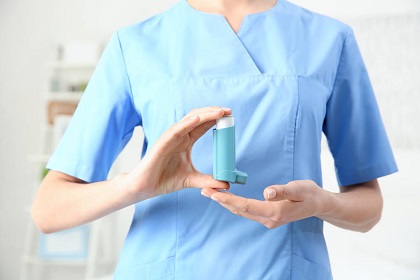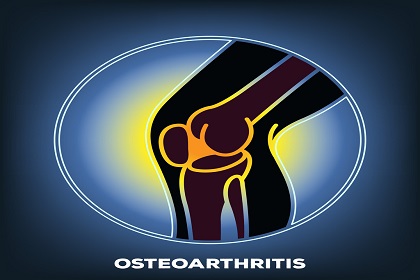Search
Why get vaccinated?
Meningococcal disease is a serious illness caused by a type of bacteria called Neisseria meningitidis. It can lead to meningitis (infection of the lining of the brain and spinal cord) and infections of the blood. Meningococcal disease often occurs without warning—even among people who are otherwise healthy. Meningococcal disease can spread from person to person through close contact(coughing or kissing) or lengthy contact, especially among people living in the same household.
There are at least 12 types of N. meningitidis, called “serogroups.” Serogroups A, B, C, W, and Y cause most meningococcal disease.Anyone can get meningococcal disease but certain people are at increased risk, including:
• Infants younger than one year old
• Adolescents and young adults 16 through 23 years old
• People with certain medical conditions that affect the immune system
• Microbiologists who routinely work with isolate sofN. meningitidis
• People at risk because of an outbreak in their community
Even when it is treated, meningococcal disease kills 10 to 15 infected people out of 100. And of those who survive, about 10 to 20 out of every 100 will suffer disabilities such as hearing loss, brain damage, kidney damage, amputations, nervous system problems, or severe scars from skin grafts.
Meningococcal ACWY vaccines can help prevent meningococcal disease caused by serogroups A, C, W, and Y.
Meningococcal ACWY vaccines
China has three kinds of meningococcal vaccines licensed by the Food and Drug Administration (FDA) for protection against serogroups: Meningococcal A, Meningococcal A+C and Meningococcal A+C+Y+W135; with different production technology either polysaccharide vaccine or conjugate vaccine.
In addition to routine vaccination for adolescents, MPSV4 vaccine is also recommended for certain groups of people:
• People at risk because of a serogroup A, C, W, orY meningococcal disease outbreak
• Anyone whose spleen is damaged or has been removed
• Anyone with a rare immune system condition called “persistent complement component deficiency”
• Anyone taking a drug called eculizumab (also called Soliris®)
• Microbiologists who routinely work with isolates of N.meningitidis
• Anyone traveling to, or living in, a part of the world where meningococcal disease is common, such as parts of Africa
• College freshmen living in dormitories
• Military recruits
Children between 2 and 23 months old, and people with certain medical conditions need multiple doses for adequate protection. Ask your health care provider about the number and timing of doses, and the need for booster doses.
Some people should not get this vaccine
Tell the person who is giving you the vaccine:
• If you have any severe, life-threatening allergies. If you have ever had a life-threatening allergi creaction after a previous dose of meningococcal ACWY vaccine, or if you have a severe allergy to any part of this vaccine, you should not get this vaccine.Your provider can tell you about the vaccine's ingredients
• If you are pregnant or breastfeeding. There is not very much information about the potential risks of this vaccine for a pregnant woman or breastfeeding mother. It should be used during pregnancy only if clearly needed
• If you have history of seizure, epilepsy or allergy; brain, heart or kidney disease and active TB disease
• Acute infective disease and fever patient should postpone the vaccination
If you have a mild illness, such as a cold, you can probably get the vaccine today. If you are moderately or severely ill, you should probably wait until you recover. Your doctor can advise you.
Risks of a vaccine reaction
With any medicine, including vaccines, there is a chance of side effects. These are usually mild and go away on their own within a few days, but serious reactions are also possible. As many as half of the people who get meningococcal ACWY vaccine have mild problems following vaccination, such as redness or soreness where the shot was given. If these problems occur, they usually last for 1 or 2 days. A small percentage of people who receive the vaccine develop a mild fever.
After vaccination, please stay in clinic observation area for 30 minutes.
Problems that could happen after any injected vaccine
• People sometimes faint after a medical procedure, including vaccination. Sitting or lying down for about 15 minutes can help prevent fainting, and injuries caused by a fall. Tell your doctor if you feel dizzy, or have vision changes or ringing in the ears
• Some people get severe pain in the shoulder and have difficulty moving the arm where a shot was given. This happens very rarely
• Any medication can cause a severe allergic reaction. Such reactions from a vaccine are very rare, estimated at about 1 in a million doses, and would happen within a few minutes to a few hours after the vaccination
What if there is a serious reaction?
What should I look for?
Look for anything that concerns you, such as signs of a severe allergic reaction, very high fever, orbehavior changes. Signs of a severe allergic reaction can includehives, swelling of the face and throat, difficulty breathing, a fast heartbeat, dizziness, and weakness. These would start a few minutes to a few hours after the vaccination.
What should Ido?
If you think it is a severe allergic reaction or other emergency that can't wait, call 120 or get theperson to the nearest hospital. Otherwise, call yourdoctor.
Where can I get more information?
• Jiahui Health
Contact number: 400-868-3000
• Shanghai Municipal Center for Disease Control & Prevention
Contact number: 021-62758710
Website: http://www.scdc.sh.cn
Reference
The US Centers for Disease Control and Prevention. Vaccine Information Statement: Meningococcal ACWY Vaccine, 03/31/2016
Click the link for more information on Family Medicine Clinical Service
Click the link for more information on Pediatrics Clinical Service











